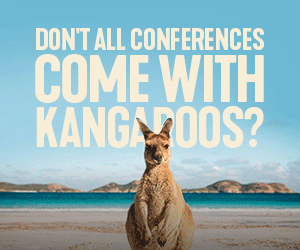Navigating cultural differences in international associations

What do association executives and leaders need to keep in mind when addressing the needs of members from different countries and cultures?
“During my time heading up the International Coloured Gemstone Association and the Natural Coloured Diamond Association, I found it most important to have the right staff members. Training them to be sensitive to different cultures and be respectful to all is important, as interaction with members is a vital aspect of member retention. Member benefits are important to everyone, but being treated as a valuable part of the association is equally important.
Barbara Wheat, M.S., A.G. President, Asian Institute of Gemological Sciences (AIGS) - Bangkok Thailand
The key language of our organisation is English, and most events are conducted in that language. However, we happily accept that South American conferences will use Spanish as their key language, and we also ensure that proceedings of our World Council (our Governing Body) are simultaneously translated into Spanish. China is an up-and-coming country in terms of family medicine, and so we try to include a stream of parallel sessions in Mandarin, to encourage Chinese attendance.
Dr Garth Manning Chief Executive Officer World Organisation of Family Doctors (WONCA)
"As a leader of more than two decades in a global as well as a regional organisation, I think the culture, customs and values define your aspirations, expectations, persona and identity. Hence, it is crucial and fundamental to deal with members from diverse backgrounds distinctively. You cannot apply a common yardstick to all.”
Hemant K Batra, Vice President, SAARC LAW, Founder & Chairman, Kaden Boriss Global Alliance Link, Senior Fellow & Policy Expert, Goeman Bind HTO - New Delhi, India
How do cultural differences come into play when you plan your meetings?
All of the events I have ever organised have been for international participation, therefore, every aspect of planning must be inclusive for all, regardless of culture or background. My first step usually involves choosing a destination that will appeal to my target participants and dates that won't conflict with religious or other important holidays. Next, negotiating the hotel room rate is important so as not to exclude those who might find the nightly rate too high. Even though we’re in a luxury business, we are careful to keep in mind that some of our suppliers along the supply chain are working with smaller budgets for event travel.
Once these items are in place, I get to work on other aspects, always keeping an eye on things such as food preferences and restrictions, timing and other things that might not fit with everyone I'm looking to attract as an attendee.
Barbara Wheat
WONCA is a truly global organisation with members in all seven continents. Whilst exciting and enriching, this does present challenges in terms of language, culture and custom.
We work closely with the Host Organising Committee (HOC) for each event and with their chosen Professional Conference Organiser (PCO). We have explored having a core PCO, to work with on all events, and I am personally very much in favour of this. However our members get used to working with “their” PCO, and are reluctant to have to build up a relationship with the core PCO, so for now we have to establish a new relationship with each new PCO that is used. A venue would normally only be selected if the venue, facilities, accommodation and alternatives for accompanying partners were all good. English is the common language, but other customs vary, and we have always to be sensitive to that. What is normal for South America, in terms of entertainment and social events, would be much less acceptable for our Eastern Mediterranean Region, but we work hard to ensure that all social events will be enjoyable for the vast majority of delegates, and we have guidelines and equity standards to advise HOCs. Our Conference Planning Committee, which I chair, looks at a whole series of issues including programming, food and social events, to ensure acceptability. Punctuality is the one thing that we cannot control, however, but we try as best we can to emphasise to the organisers the importance of starting on time and keeping to time as much as possible, to reduce frustrations among delegates and presenters.
Dr Garth Manning
The cultural and ideological differences help us grow as one big family that can disagree at times yet find unity in diversity. While managing a global/regional organisation or an event of such nature, one would need to brace up like a global and multi-national leader. I am of the view that international exposure of varied nature is more than essential for assuming any organisational role.
Hemant K Batra
Other Articles
About Us
Supported by the Union of International Associations (UIA), the International Association of Professional Congress Organisers (IAPCO) and the Interel Group, the global public affairs and association management consultancy, Headquarters Magazines serve the needs of international associations organising worldwide congresses.















